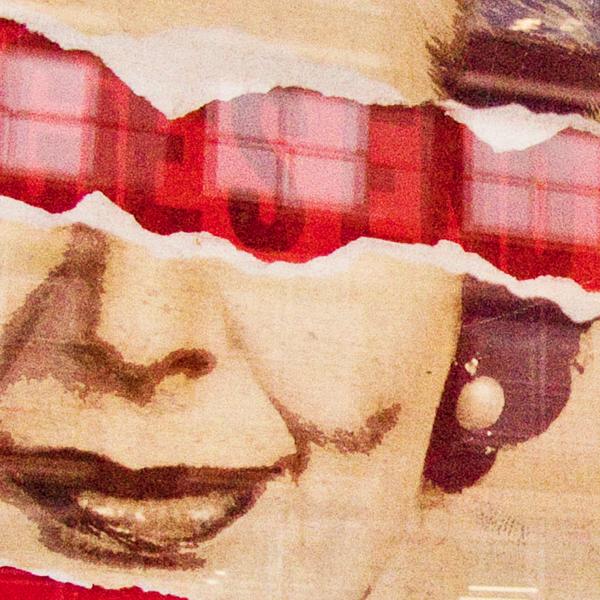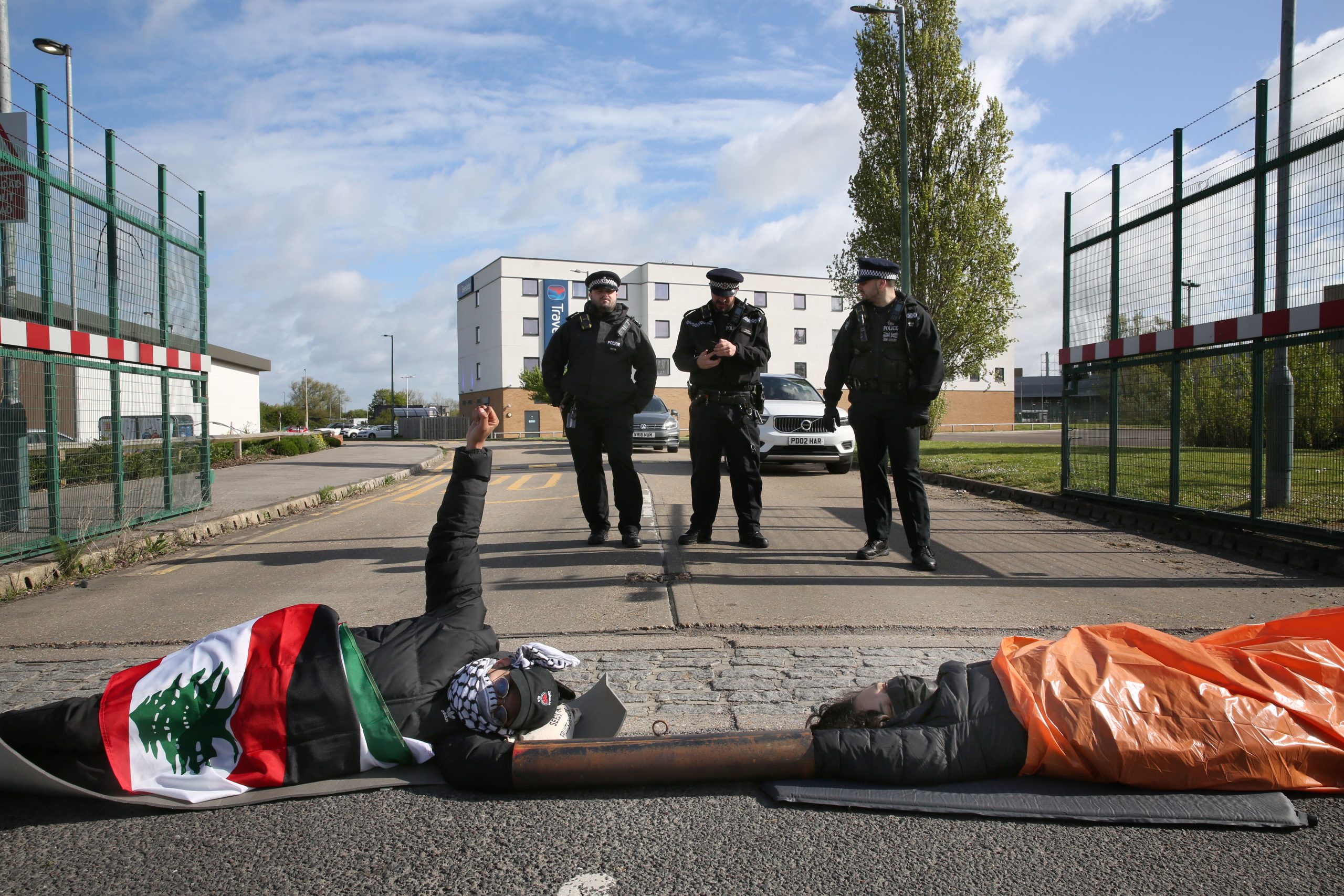On a warm day in September 2002, a freshly shaved man appeared in Athens General Police Headquarters. He was wearing a black t-shirt writing in bad English syntax ‘Charmy Hellas Greece’. He walked slowly to the guard and he announced: “Good afternoon, my name is Dimitris Koufontinas and I would like to surrender myself.”
This event signified the end of a 27-year-old history of the Marxist-Leninist urban guerrilla group “Revolutionary Organization 17 November” (17N). It was also the end of this 1970s political tactic in entire Europe. The rest of the armed urban guerrilla groups dated from that decade, with their explicit references to anti-imperialism, anti-Americanism, anti-capitalism and communism, such as RAF in Germany, Red Brigades in Italy or Action Direct in France, had been already dismantled.
In the trial that followed in Athens, 14 people were sentenced to penalties ranging from 8 years to several times of life imprisonment for actions such as the executions of CIA officers, or police officers who had served as torturers of the military dictatorship or even MPs; bomb attacks or rocket launches with bazookas, bank robberies and other actions. Dimitris Koufontinas, as someone who assumed the political responsibility for the actions of the organisation, including the 11 most recent homicides, received one of the heaviest sentences in Greek juridical history, 11 times of life imprisonment plus 25 years.
The end of 17N came with an accidental explosion of a bomb in the hands of a member of the group a few months before the surrender of Koufontinas. Soon the Greek police with the help of foreign intelligence services managed to interrogate the badly injured terrorist in the hospital intensive care unit whittled to the dismantling of the group.
Although accidents often play a role in history, it is the general historical conditions that give significance to events. What Koufontinas claimed in his statement in the court was true: At the time of their arrest, more than 90% of the respondents in all social surveys, run by major newspapers, were stating that they are not scared of 17N. Meanwhile, more than 20% of Greeks were expressing sympathy for the group and its actions. Nevertheless, the public opinion on 17N in the early 2000s was very different in comparison to the 1970s or 1980s. Following WWII, Greece suffered from decades of state-organised terrorism against workers unions and the Left culminating into a 7-year long military dictatorship (1967-1974) followed by a fragmented democracy, with a very lean system of justice that did not dare to punish properly the dictators and their criminal officers. So after decades of victimisation, armed actions like the ones 17N was carrying out, were enjoying extended sympathy in large proportions of the populations in the 1970s. Nevertheless, Greek society in early 2000s was a very different place in comparison to the 1970s’ and these actions were less popular, whilst many of its past supporters were feeling that the group and its actions were outdated if not wrong, under the current, at the time, circumstances. By the end of the trial, most people in Greece would agree that 17N and the social conditions that led to the group’s formation, were now the job of historians as it happened to the rest of European countries in reference to these 1970s armed tactics.
Despite the closure of this historical chapter of political conflict in Greece, and although no armed groups appeared claiming affiliation with 17N since, the Greek state mechanisms followed a policy of revanchism against the prisoners, creating a state of exception from the normal rule of the law. The inmates convicted for the case of 17N were placed systematically in a liminal stage between the regular rule of law and legal modifications specifically tailored to put them at a juridical disadvantage. In 2014, the Greek state proposed a bill for the creation of special super maximum-security prisons to which the former terrorists of 17N should be transferred. That was the strike that broke the back of the camel for the Greek democratic and antagonistic movement, which at that time protested and halted the government’s decision. Juridical exceptions were also applied several times in Koufontinas’ applications for 24-hour leaves of absence from prison, which were rejected, without justification although he was entitled by the law to them.
The last act within this grey zone where the juridical processes and political interests are mixed in the case of the 17N is played as we write these lines. Koufontinas, a prisoner with no disciplinary or other offences since his arrest, was serving, as he was entitled by the law, a short part of his sentence in the low-security agricultural prison. Yet, the current Right-wing government of Kyriakos Mitsotakis, as soon as they were elected, passed another special modification to the law targeting personally Koufontinas, instructing that prisoners convicted as terrorists could not serve their sentence in agricultural prisons and have to return back to their last prison. Koufontinas was of course the only such prisoner. So although the inmate was supposed to return to his original jail, that of Koridalos in Athens, he was sent to another prison, which was the prototype of the super maximum-security prisons that were planned back in 2014. After this, Koufontinas initiated a hunger strike demanding the application of the law and thus to be transferred to his original prison. His applications are rejected, whilst the government, including the Prime Minister, put pressure on the juridical system, defending the illegal refusal as an application of an otherwise abusive bill they passed taking advantage of their parliamentary majority. The situation was so revolting that the Union of Judges of Greece issued a statement demanding the application of the rule of law in the case of Koufontinas.
As Koufontinas is almost two months on hunger strike and more than 15 days on thirst strike in the intensive care with several of his organs failing, protests in solidarity with him in major Greek cities are ruthlessly attacked by the police. As we write these lines, his condition is considered critical and death may occur at any moment. Meanwhile, even governmental MPs have differentiated themselves from the governmental discourse and request the application of the law.
Why this happens now?
One may wonder why a government in an EU country in 2021 refuses to apply the law, risking to have the first political prisoner dying from hunger strike in Greece? Arguably in this particular conjuncture, this is not just a mere obsession of a conservative government against a radical communist prisoner. The case of Koufontinas is part of a wider, long-term strategy grounded in the sociopolitical arrangement of the pandemic state of exception.
One year after the beginning of this peculiar state of exception, which at least in the beginning seemed to enjoy a general consent, the Greek government has proposed and passed bills and legislative acts that were highly questionable or unimaginable for decades now. The most typical example is the bill on Higher Education that equalises the degrees awarded by mediocre private colleges with the ones offered by the Greek public Universities. It moreover, establishes a permanent police force on university campuses, whereas until now even the presence of regular police on campus was prohibited by the constitution. Historically, the radical university student movement in Greece consisted of a crucial political agent, from the struggle against the military dictatorship in the 1970s, until contemporary movements against neoliberal reforms. Thus its policing and repression has been the holy grail of many governments. The case of the highly unionised Greek students has troubled even the American embassy in Greece, which reported the situation back in the State Department *.
Many public commentators argue that according to the typical “shock doctrine”, cases like Koufontinas’ illegal transfer to a super maximum-security prison, the bill for the permanent police presence in the universities, along with the rest of the governmental abuses of the quarantine should be interpreted as an authoritarian shift, facilitated by the shock and fear that looms over the Greek society during the pandemic. As the antagonistic movements are restricted by default due to the lockdown and the ban on gatherings in public spaces, these are perhaps the best times for a government to avoid mass demonstrations and achieve a smooth application of its most questionable bills.
Yet, one may suggest that what is happening is something very different. The Greek governmental officials are well aware that the police presence in the universities will not reduce the tensions between the students and the police. Until today, at least 3 massive demonstrations took place in Athens, Patra and Thessaloniki in opposition to the new bill and were repressed violently by the police leading to clashes. The possible death of Dmitris Koufontinas will not result in the “numbness” of the antagonist movement, but rather in an eruption of unpredictable scale during a pandemic. It seems as if the government perceives the current conjuncture as the ideal historical phase not to avoid the fight with the “shock and awe” policy, but instead to lure out the “street opposition” to a thanatopolitical open confrontation.
As the pandemic is still ranging, every day mass demonstrations will turn the bodies of the protestors into potential contamination sources, allowing the government to frame its pandemic policies, or the absence of them, in terms of an opposition with an external “Other”. The total lockdown and curfew policy is the last resort solution of a system that has not invested for decades in public healthcare. As these total lockdown policies are completely failing to constrain the rise of COVID- 19 cases in the metropolis and no other strategy seem to rise from the governmental cadres, the only other option is to channel death and suffering through a political conflict that will blur the boundaries of responsibility, of what is right and wrong and of what is to be done. Most probably the Greek government is willing to give a final fight with an antagonistic movement that is already in crisis after the defeat of radical politics in 2015 which were capitalized by the SYRIZA government.
As the post-pandemic developmental plan is already underway, with gentrifications, mass selling-off of public assets and further deregulation of labour putting Greece well on its way to become a bad version of Balkan Dubai, it is a “now or never” opportunity for the government to get rid of an “outdated” street opposition that does not fit in the plan to transform Greece into huge pensioners paradise for wealthy Northern Europeans. Risk-taking will be an inherent characteristic of politics hereafter and the Greek government seems to think that it holds a good hand that will allow it to raise “all in” in this game of death.
Georgos Poulimenakos, Oslo University
Dimitris Dalakoglou, Vrije Universiteit Amsterdam
* See the leaked document here. The student’s movement is discussed in section 9.








